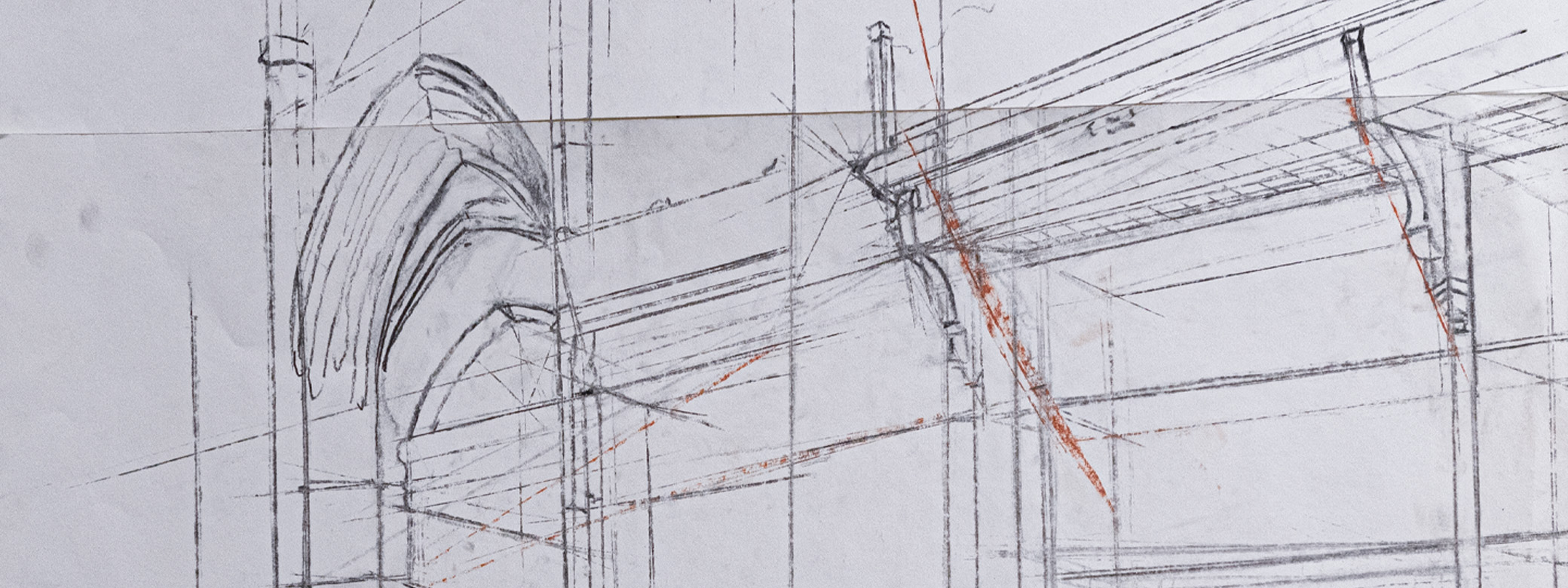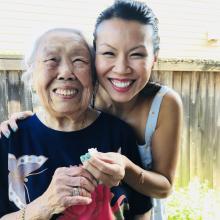Background
Benita Cooper (née Lee) completed an Interdisciplinary Visual Arts degree in 2000 and concurrently did a second UW bachelor's degree in Architecture. She now works as an architect with her own firm in Pennsylvania and New Jersey. The Philadelphia Business Journal gave her a Minority Business Leader Award this summer. At the same event, she was presented with a Joint Ceremonial Resolution Certificate from the New Jersey Senate that described her as a "woman of strong character and fortitude" with a "meritorious record of excellence within all the spheres of her life and work." We wanted to learn more about her UW experience, her life since graduation, and her non-profit that works to decrease isolation for older adults.
Interview
Q: What made you choose art and architecture as majors?
A: If you asked me then, I might have told you something more obvious. I would have told you I've always loved drawing, math, working with my hands. Now, when I hear that question, I wonder if it also had to do with my age and worldview at the time.
I had moved from Hong Kong to Seattle at age 12, then skipped high school and began college at UW at age 15. The world was evolving quickly around me, and, instead of any sense of fear, I remember feeling amazed, alive, and adventurous. It fueled my desire to create and innovate things that can help people in durable and meaningful ways.
Now that I am older, I am aware that I am both extremely left-brained and intensely right-brained. I think my two majors opened up a path for me to discover that about myself. My art major gave me more of an emotional outlet; my architecture major gave me more of an analytical one. When both sides of my brain are fired up and working hard, I feel the most balanced and happy.
Q: Do you have any significant memories from your time as an Interdisciplinary Visual Arts (IVA) student?
A: The first things that come right back to my mind are microscopic— the feeling of charcoal on my fingers and sawdust on my face. I explored many different art media through my IVA degree only to rediscover that I love the simplest media the most. I drew and painted every chance I got. And, I basically lived in the woodshop, learning to use every machine and tool I could get my hands on.
As for the thing or experience that looms the largest in my memory, it has to be my study-abroad in Italy (which was preceded by my study-abroad in Mexico through the architecture program.) I was amazed by how art was woven into daily life and available for everyone to enjoy in public spaces big and small. I was also amazed by the co-existence of historical art of the highest quality (at traditional museums) and experimental art of equally perfect quality (at the Venice Biennale.)
Q: How do these memories continue to inform your work today?
A: I learned that art and architecture can — and should — inspire entire communities and spark social change. But, to properly do that, you need to find your voice. And, what you decide to say (through your work, which should be able to "speak" or express the maker's intent without you speaking at all) needs to be relevant for people and communities, not just you. Self-expression is a facet of art but cannot be the end goal. Art and architecture have greater societal responsibilities to fulfill. To me, acts of creativity are acts of service to others.
At the same time, you can't just be visionary. You can't just settle for theories or ideas. You have to take action and do it with precision, rigor, and discipline. You have to roll up your sleeves and put in actual time, blood, sweat, and tears. You have to work hard every single day until you have mastered all of your tools and techniques — and, when you have done that, you need to keep it up so you don't get rusty. Until you have full control of your paint strokes, your painting won't turn out right. Until you know how to run a piece of wood just the right way through the right sequence of machines, your furniture won't fit together. Until you know everything about construction — and then know how to convey your design intent through the right drawing conventions — your building can't be built.
Q: Would you give us a summary of what you have done since leaving the UW?
A: At my final architectural studio review at UW, I was generously offered a job on the spot by the head of a well-known local firm. So, I worked for a couple years in Seattle before moving to Boston with my then-boyfriend (a UW graduate student) to pursue my Master of Architecture degree at Harvard University's Graduate School of Design.
We got married the summer after I graduated from Harvard. Then we moved to Philadelphia because of job offers even though we knew nothing about the city! After working for larger firms, I started Benita Cooper Design in 2008, to offer a full range of architectural and interior design and construction management services for residential and commercial clients.
I also started my non-profit, The Best Day of My Life So Far, in 2009 to reduce older adult isolation and promote intergenerational engagement through storytelling (turns out the spoken and written word would become my primary "art" medium after all these years!). In 2013, I had my son, Kian; in 2015, Jett.
Kian said to me the other day, "Mom, do you know you have three jobs? Being a mom — awesome! Helping people — great! Building buildings and houses — perfect!"
Q: What new lessons have you learned since leaving UW?
A: I've learned that good work requires deep core values. I take business and nonprofit ethics very seriously, and I surround myself with people who are not only good at what they do but good, solid people. I find that my quality of work and life immediately improves when I disengage from people who are disrespectful to me or the people around me. Any little bit of success or opportunity I have ever had is the result of the teamwork and loyalty of many people around me, from clients who have become close friends to people on my team whom I have had the honor to mentor for years. Because I love my design and nonprofit work so much, and the people I do it with, I think our collective positive energy naturally shows through in the work. Even though our work is rigorous, it is just so fun.
Q: Tell us more about your non-profit. We hear it is having its tenth anniversary.
A: My grandma, who was born in a little Chinese village and lived a quietly extraordinary life in Hong Kong, Seattle, and finally the suburb of Bellevue where she passed away peacefully last year, inspired me to start The Best Day of My Life So Far. The name refers to my memory of her carefree laugh at the end of my first real phone call with her — I was 25, had been living in Philadelphia for a year, and felt unusually homesick one day. I decided to call her to just say hi for the first time in my life. She opened up to me about a devastating story from her childhood; instead of sadness, she told it with courage and joy. I realized stories, when shared with genuine intentions, have a power to connect people across generations, distances, and differences. A few years later, the economic recession happened, and I saw everyone everywhere sad about materialistic losses, as though that's all that life is made of. I borrowed a table at my local senior center for an hour a week to sit with Philadelphia older adults, in hopes that I could share the joy my grandma had given me with them and their families. Since then, because of the generosity of donors and hard work of volunteers, we have been able to take our storytelling-based intergenerational engagement programs to diverse cities nationwide. We have won awards and earned the support of the press, the public, researchers, and healthcare and cultural institutions, and we are now considered a scalable and proven solution to reducing older adult isolation. Isolation can cause many devastating physical and mental health issues, and 28% of older Americans are at risk.
Q: How can people support your mission here in the Pacific Northwest?
A: We have partnered with organizations such as Kin On, LeadingAge WA, Senior Housing Assistance Group, and companies such as T-Mobile to deliver our programs to Greater Seattle. In the next decade, I would love to be able to build more partnerships and have more sponsorships here as I consider Seattle one of Best Day's birthplaces since that's where my grandma lived and where most of our extended family still lives. My family returns to Seattle regularly to spend time with our extended family, and I am always open to running events, starting groups, and hosting training sessions, especially when I am in town. Any company or organization interested in enhancing communication skills should contact us to chat! Our 3 programs are tailored to different audiences and there is something for everyone.
You can also make a direct donation as a 10th Anniversary Sponsor, as an individual or company, and let us know you would like it to be put towards our work in Seattle.



